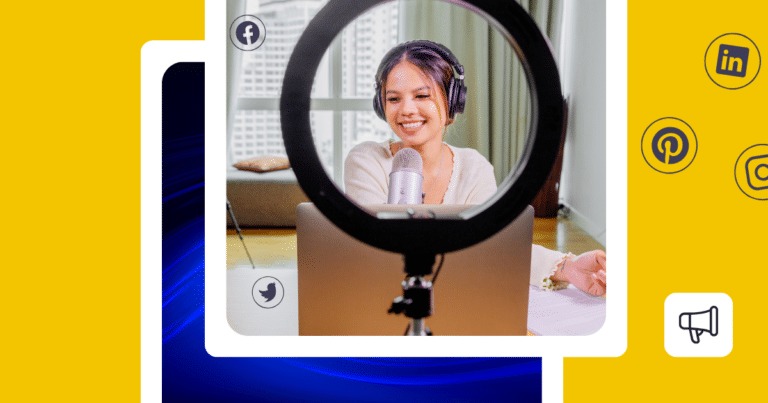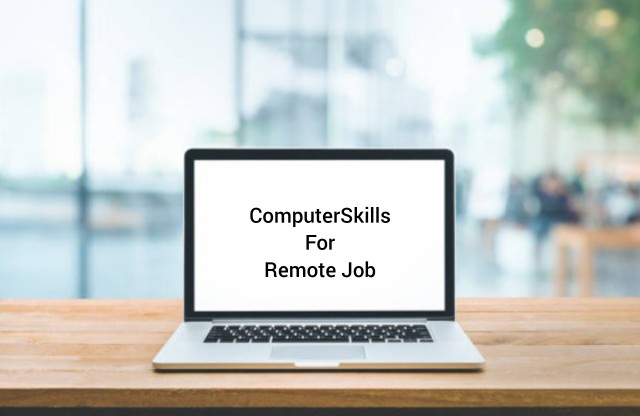Navigating the journey of how to get a job as a digital content creator can be both exciting and overwhelming, but with the right approach, you can turn your passion into a fulfilling career. Start by identifying your niche- whether it’s travel, food, tech, or fashion-this will help you focus your content and connect with a dedicated audience.
Understanding your target audience is equally crucial; research their interests, preferences, and pain points to create content that resonates deeply with them. Additionally, building a strong portfolio showcasing your skills in writing, video production or graphic design is essential. This collection of work acts as a testament to your abilities and can significantly enhance your chances of landing job opportunities.
Once you’ve established your niche and developed a robust portfolio, the next step in how to get a job as a digital content creator involves actively seeking out job opportunities and effectively marketing yourself. Utilize job boards, freelancing platforms, and social media to uncover openings, while also networking with fellow creators and industry professionals.
Tailor your resume and cover letter to highlight your relevant skills and experiences, ensuring they align with the specific roles you’re targeting. In interviews, be prepared to discuss your creative process and showcase your portfolio to demonstrate your capabilities. Remember, continuous learning and adaptability are key in the ever-evolving digital landscape, so keep honing your skills and stay updated on industry trends to remain competitive.
What Exactly Does a Digital Content Creator Do?
To grasp how to get a job as a digital content creator, it’s essential to understand what this role entails. Digital content creators produce content across various platforms, including social media, blogs, websites and video-sharing platforms. They blend creativity with strategy, ensuring that their content resonates with target audiences while meeting business objectives.
Types of Content Creation
Digital content creation encompasses a range of formats:
- Written Content: This includes blog posts, articles, eBooks, and social media updates. Written content is foundational for SEO and building authority in your niche.
- Visual Content: Graphic design, infographics, and images fall under this category. Visuals enhance engagement and help convey messages quickly.
- Video Content: Videos can range from short social media clips to long-form YouTube tutorials. Video content is highly engaging and often leads to higher conversion rates.
- Audio Content: Podcasts and voiceovers have gained traction as more people consume content on the go.
Each format requires different skills and as a digital content creator, you may specialize in one or more of these areas.
Finding Your Niche
Why Is a Niche Important?
One of the first steps in learning how to get a job as a digital content creator is identifying your niche. A niche helps you focus your efforts, allowing you to build authority and a dedicated audience.
Think about your passions, interests, and expertise. Are you a foodie? A fitness enthusiast? An expert in personal finance? Finding a niche that aligns with your interests not only makes content creation enjoyable but also makes it easier to connect with your audience.
Research Your Audience
Once you’ve identified your niche, the next step is to research your target audience. Understanding their preferences, pain points, and what type of content resonates with them is crucial. You can use tools like Google Analytics, social media insights, and surveys to gather data about your audience.
Building Your Skill Set
What Skills Do You Need?
To successfully navigate how to get a job as a digital content creator, you need a diverse skill set. Here are some essential skills to develop:
- Writing: Strong writing skills are crucial for creating compelling content. Practice writing regularly and experiment with different styles.
- Visual Design: Familiarize yourself with design tools like Canva or Adobe Creative Suite to create eye-catching graphics.
- Video Production: Learning the basics of video editing and production can enhance your content. Platforms like Adobe Premiere Pro and Final Cut Pro are great for this.
- SEO Knowledge: Understanding SEO principles can help your content reach a wider audience. Use keywords strategically and focus on optimizing your content for search engines.
- Social Media Savvy: Being active on social media is essential. Each platform has its own dynamics, so learn how to create content tailored to each.
Create a Portfolio
Why Is a Portfolio Important?
When exploring how to get a job as a digital content creator, having a portfolio is vital. A portfolio showcases your skills and demonstrates your experience to potential employers or clients.
Start by creating samples of your work, even if you haven’t had a professional experience yet. You can write blog posts, design graphics or create short videos to display your creativity and expertise. If possible, contribute to online publications or collaborate with other creators to expand your portfolio.
Leveraging Social Media
Using Social Media to Your Advantage
Social media plays a significant role in content creation and distribution. To understand how to get a job as a digital content creator, you should leverage these platforms to showcase your work and connect with your audience.
- Choose the Right Platforms: Focus on platforms where your target audience spends their time. For instance, Instagram is excellent for visual content, while LinkedIn is better suited for professional networking.
- Engage with Your Audience: Respond to comments, ask questions, and participate in discussions. Building relationships with your audience fosters loyalty and increases your reach.
- Network with Other Creators: Connect with other content creators in your niche. Collaboration can help you gain exposure and learn from others’ experiences.
Finding Job Opportunities
Where to Look for Jobs
As you dive deeper into how to get a job as a digital content creator, knowing where to look for opportunities is crucial. Here are some avenues to explore:
- Job Boards: Websites like Indeed, Glassdoor, and LinkedIn often have listings for digital content creator roles.
- Freelancing Platforms: If you prefer flexibility, consider freelancing. Platforms like Upwork, Fiverr, and Freelancer allow you to bid on projects that match your skills.
- Networking Events: Attend industry events, webinars, and workshops to connect with potential employers and learn about job openings.
- Company Websites: Many companies list job openings on their career pages. Research organizations in your niche and apply directly through their websites.
Tailoring Your Application
Crafting the Perfect Resume and Cover Letter
When applying for positions, remember that your application materials are your first impression. To stand out, tailor your resume and cover letter to the job description. Highlight relevant experience and skills that align with the role.
- Use Action Words: Use strong action verbs to convey your accomplishments effectively.
- Quantify Your Achievements: If possible, include metrics to demonstrate your impact. For example, “Increased blog traffic by 50% in three months.”
- Personalize Your Cover Letter: Address the hiring manager by name and express genuine interest in the role. Share why you’re passionate about the company and how you can contribute.
Preparing for Interviews
What to Expect in Interviews
Once you land an interview, it’s time to showcase your skills and passion for content creation. Here’s how to prepare:
- Know the Company: Research the company’s mission, values, and content style. Be ready to discuss how your skills align with their goals.
- Prepare for Common Questions: Anticipate questions about your experience, skills, and content creation process. Practice your responses to build confidence.
- Bring Your Portfolio: If applicable, bring a portfolio of your work to showcase during the interview. This visual evidence of your skills can make a lasting impression.
Staying Relevant in a Changing Landscape
Continuous Learning and Adaptation
The digital landscape is constantly evolving and as a content creator, it’s essential to stay updated on trends and best practices. To thrive, commit to continuous learning:
- Follow Industry Trends: Subscribe to newsletters, podcasts, and blogs related to content creation and marketing.
- Attend Workshops and Courses: Enroll in courses to enhance your skills. Websites like Coursera, Udemy, and Skillshare offer valuable resources.
- Experiment with New Formats: Don’t be afraid to try new content formats or platforms. Adapting to changes can set you apart from the competition.
Building a Personal Brand
What Is Personal Branding?
A strong personal brand is crucial for standing out in the crowded digital space. Your personal brand reflects your values, expertise, and unique style as a content creator.
- Define Your Brand: Determine what you want to be known for in your niche. What makes you unique? What values do you want to convey?
- Be Consistent: Maintain consistency in your content, messaging, and visuals across platforms. A cohesive brand helps build recognition and trust.
- Engage Authentically: Share your journey, experiences, and insights. Authentic engagement resonates with audiences and fosters loyalty.
In conclusion, learning how to get a job as a digital content creator involves a combination of skill development, networking, and personal branding. Embrace your creativity, find your niche, and engage with your audience authentically. The digital world is full of opportunities for those willing to put in the effort and adapt to the ever-changing landscape. As you embark on this exciting journey, remember that your unique voice and perspective can make a significant impact in the world of digital content creation.
Frequently Asked Questions
Do I need a degree to work as a digital content creator?
While a degree in marketing, communications, or a related field can be helpful, it’s not always necessary. Many successful content creators have built their careers through practical experience and a strong portfolio rather than formal education.
How important is it to have a portfolio?
A portfolio is crucial for showcasing your skills and experience to potential employers or clients. It allows you to demonstrate the quality of your work and your unique style, which can set you apart from other candidates.
Where can I find job opportunities as a digital content creator?
Job opportunities can be found on job boards like Indeed, LinkedIn, and Glassdoor, as well as freelancing platforms like Upwork and Fiverr. Networking events and industry conferences can also provide valuable connections and job leads.
How can I identify my niche as a content creator?
To identify your niche, consider your passions, interests, and expertise. Research your target audience to understand their needs and preferences and choose a niche that aligns with your strengths and what you enjoy creating.
What platforms should I focus on as a digital content creator?
The platforms you should focus on depending on your target audience and content type. Popular platforms include Instagram, YouTube, TikTok, LinkedIn, and personal blogs. Tailor your content to fit the specific dynamics of each platform.
How can I effectively promote my content?
Promote your content through social media, email marketing, and collaborations with other creators. Engaging with your audience, utilizing hashtags, and participating in relevant online communities can also increase visibility.
What role does SEO play in content creation?
SEO (Search Engine Optimization) is crucial for increasing the visibility of your content in search engine results. Understanding keyword research, on-page optimization and link building can help your content reach a wider audience.
How can I stay updated on industry trends?
Stay informed by following industry blogs, subscribing to newsletters, listening to podcasts, and participating in webinars. Engaging with fellow creators on social media can also provide insights into current trends and best practices.







